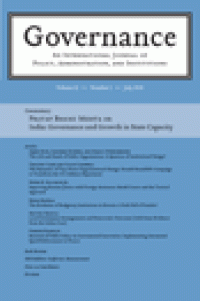
Journal Articles
The Limits of Policy Diffusion : Introducing International Norms of Anti-Money Laundering into China's Legal System
This article examines the contribution of policy diffusion to create a regulatory system against money laundering in China. A two-level analysis of transnational interactions and domestic law making shows how Communist Party prerogatives shape the insertion of multilateral norms into the legal system. In a contentious process of local accommodation, transnationally engaged technocratic bodies, turf-conscious bureaucracies, and powerful party organs struggle to reconcile the goals of promoting global economic expansion, gaining international recognition, and absorbing innovative regulatory tools while preserving tight domestic control. In effect, Chinese policymakers try to utilize policy diffusion as a mechanism for negotiating and promoting the nation's global rise. Yet, when it comes to implementation, global regulatory standards are weakened or even neutralized through discretionary enforcement. The depth and robustness of normative assimilation therefore remain uncertain.
Availability
No copy data
Detail Information
- Series Title
-
Governance
- Call Number
-
-
- Publisher
- Hoboken, United States : Wiley-Blackwell., 2011
- Collation
-
-
- Language
-
English
- ISBN/ISSN
-
09521895
- Classification
-
-
- Content Type
-
-
- Media Type
-
-
- Carrier Type
-
-
- Edition
-
Volume 24, Issue 4, October 2011, pages 639–664
- Subject(s)
- Specific Detail Info
-
-
- Statement of Responsibility
-
-
Other version/related
No other version available
File Attachment
Comments
You must be logged in to post a comment
 Computer Science, Information & General Works
Computer Science, Information & General Works  Philosophy & Psychology
Philosophy & Psychology  Religion
Religion  Social Sciences
Social Sciences  Language
Language  Pure Science
Pure Science  Applied Sciences
Applied Sciences  Art & Recreation
Art & Recreation  Literature
Literature  History & Geography
History & Geography